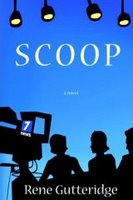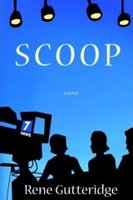Awhile ago we had a group of friends over for dinner, and as usual, I had a research question for one of the folks. This time I hit up the resident doc. I’d been researching hematology issues—which types of blood from parents can make which types of blood in the children. Due to recessive/dominant issues, for example, two A parents can make an O child (O is the most common blood type), but two Os can’t make an A. Did you know that? I didn’t. How fascinating. (Doc Mabry—I know you’re out there. If you find something wrong with this research, better tell me quick.)
Anyway, I ran this past the doc at our dinner party, who confirmed my research was correct. Another man at the party looked at me and said, “I understand why he knows that, but why on earth should you?”
Because I’m a novelist, that’s why.
It’s amazing the factoids I’ve gathered. I know tidbits on all kinds of things. Sometimes the weirdest of things. All because at one point or another, I’ve needed them in a book. I got to thinkin’ about some of the information I’ve needed and questions I’ve asked of experts for various books. The entire list would take me a week to type, but here’s a few off the top of my head.
1. Do teeth ever float? (dentist question, of course)
2. Who’s present at a C-section? (doc question)
3. The moon phase on a certain night one year in the future, when my book is taking place. (online research. Great web site at: http://stardate.org/nightsky/moon/)
4. What time the sun will rise/set on a certain day in a certain town a year in the future. (online at: http://aa.usno.navy.mil/data/docs/RS_OneDay.html. This site also gives moon phases.)
5. What times the tide will go out/come in on a certain beach on a certain day a year in the future. (online: http://tbone.biol.sc.edu/tide/)
6. How does strychnine kill you?
7. What would a judge do if he/she heard someone had threatened a jury member?
8. How does a forensic artist recreate a face from a bare skull?
9. How does a detective make a mold of a footprint?
10. How does a mass spectrometer microscope work?
11. What are the exceptions to the hearsay rule in law?
12. What’s the procedure for doing a sweep of a room for bugging devices?
13. What are the various ways to bug a phone?
14. How can you track someone’s whereabouts through their cell phone?
15. How many officers serve on the police force of a town of 1700 people, and how do they run their shifts?
16. How do night vision goggles work, and what are the choices in buying a pair?
17. Does a car rental agency ever make a copy of a renter’s driver’s license?
18. In Idaho, can you tape record a conversation when only one person in that conversation knows it’s being recorded? (Answer: yes. This is not true of many states.)
19. How is Pitocin (drug used to induce labor) administered?
20. How long before a cigarette in a couch burns a house down?
21. What’s the frequency for Oakland, California air space?
22. How do forensic anthropologists determine gender/age from scattered human bones?
23. What’s the procedure for a private adoption?
24. How long before wild animals eat a corpse in the woods?
25. At what stage of development was DNA in 1992?
26. What kind of little wild animal might steal bones?
27. On car dealership lots, where are the keys kept for all the new cars? (Answer: in a lock box on the car. The sales person carries a key to get into the lock boxes.)
28. Are the windows in the parking lot shuttles at a certain airport tinted?
29. Where do out-of-state media get their big news trucks?
30. Under what conditions can a single hair yield useable DNA?
Okay, better stop.
Readers—did you ever stop to think of all the things novelists have to learn just to write one book? Writers—you have some interesting research questions of your own? Lay 'em on me. Who knows, maybe you’ll mention a factoid I'll need to know some day...


































